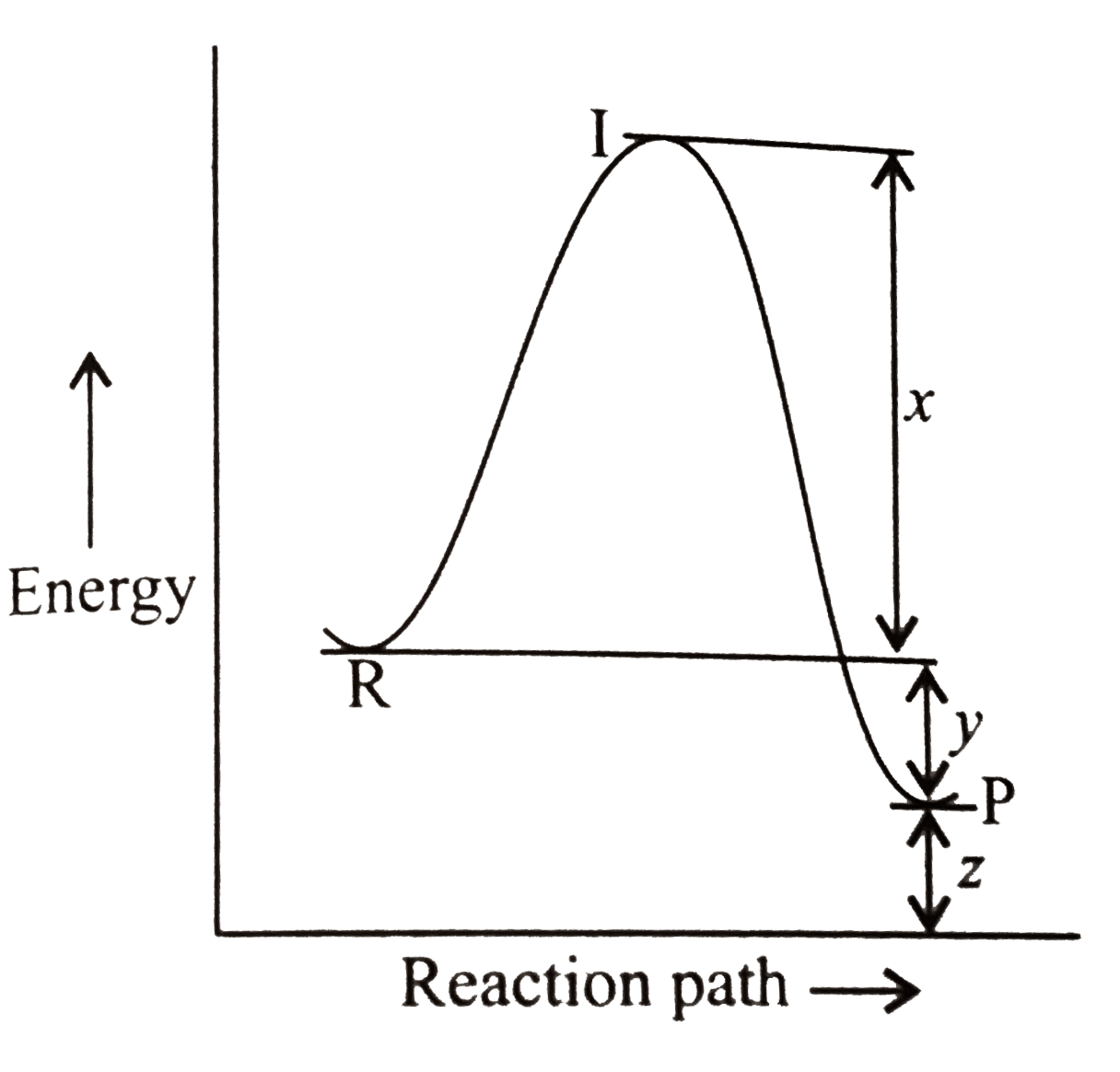In a reaction, the threshold energy is equal to
activation energy + normal enrgy of reatants
activation energy - normal enrgy of reatants
normal energy of reactants - activation energy
average kinetic energy of molecules of reactants
The correct Answer is:A
Step by step video, text & image solution for In a reaction, the threshold energy is equal to by Chemistry experts to help you in doubts & scoring excellent marks in Class 12 exams.
Updated on:21/07/2023Topper's Solved these Questions
- CHEMICAL KINETICSBOOK - OP TANDONCHAPTER - CHEMICAL KINETICSEXERCISE - OBJECTIVE QUESTIONS (LEVEL-B) SET I
48 Videos
- CHEMICAL KINETICSBOOK - OP TANDONCHAPTER - CHEMICAL KINETICSEXERCISE - OBJECTIVE QUESTIONS (LEVEL-B) SET II
13 Videos
- CHEMICAL KINETICSBOOK - OP TANDONCHAPTER - CHEMICAL KINETICSEXERCISE - PRACTICE PROBLEMS
70 Videos
- CARBOXYLIC ACIDS AND THEIR DERIVATIVESBOOK - OP TANDONCHAPTER - CARBOXYLIC ACIDS AND THEIR DERIVATIVESEXERCISE - Integer
4 Videos
- Chemical Thermodynamics and ThermochemistryBOOK - OP TANDONCHAPTER - Chemical Thermodynamics and ThermochemistryEXERCISE - Self Assessment (Integer type).
3 Videos
Similar Questions
For a reaction A→B,Ea for the forward reaction Ea(f) and backward reaction Ea(b) is 9kJmol−1 and 9kJmol−1, respectively. Potential energy of A is 12kJmol−1. Calculate
(a) The heat of the reaction
(b) The threshold energy of reaction (THE)
( c) The potential energy of Products (PE)
View Solutionfor a certain reactions, large fractions of molecules has energy more than the threshold energy, yet the rate of reaction is very slow. Why?
View Solution
Knowledge Check
For a reaction, the threshold energy is equal to
AActivation energy + initial potential energy of reactantsBActivation energy - norinal initial potential energy of reactantsCActivation energyDNormal energy of reactants.For a certain reaction a large fraction of molecules has energy more than the threshold energy, still the rate of reaction is very slow. The possible reason for this could be that
Athe colliding molecules could be large in sizeBthe colliding molecules must not be properly oriented for effective collisionsCthe rate of reaction could be independent of the energyDone of the reactant cound be in excess.Assertion : A catalyst lowers the threshold energy level for a reaction
Reason : A catalyst combines with one of the reactans of from an intermediate the follows an alternate path with lesser energy of activation.AIf both assertion and reason are correct and reason is correct explanation for assertion.BIf both assertion and reason are correct but reason is not correct explanation for assertion.CIf assertion is correct but reason is incorrect.DIf assertion and reason both are incorrect.
For a certain reaction a large fraction of molecules has energy more than the threshold energy, still the rate of reaction is very slow. The possible reason for this could be that
View SolutionFor a certain reaction large fraction of the molecules has energy more than the threshold energy, yet the rate of the reaction is very slow. Why?
View SolutionA particle of mass m strikes a stationary nucleus of mass M and activated an endoergic reaction. Show that the threshold kinetic energy required to initiate this reaction is Tth=m+MM|Q|. Where Q is the energy of the reaction.
View SolutionAssertion (A) : Catalyst increases the rate of a reaction
Reason (R) : It lowers the threshold energy of the reaction.
View SolutionThe energy profile diagram for the reaction:
CO(g)+NO2(g)⇔CO2(g)+NO(g) is given below:

The threshold energy of the reaction is
View Solution
